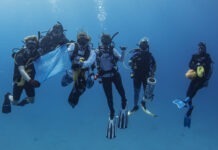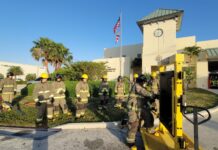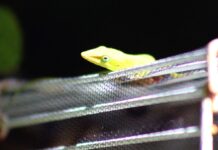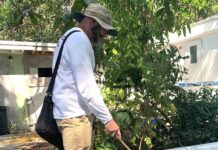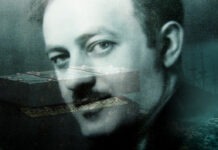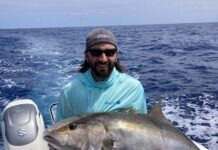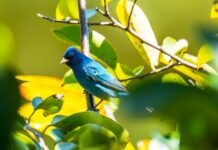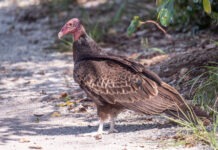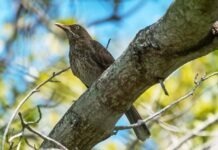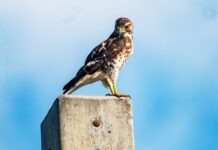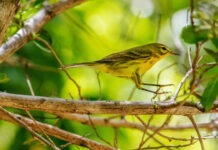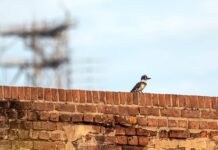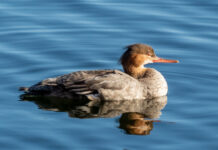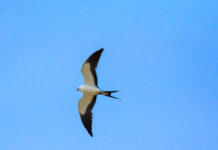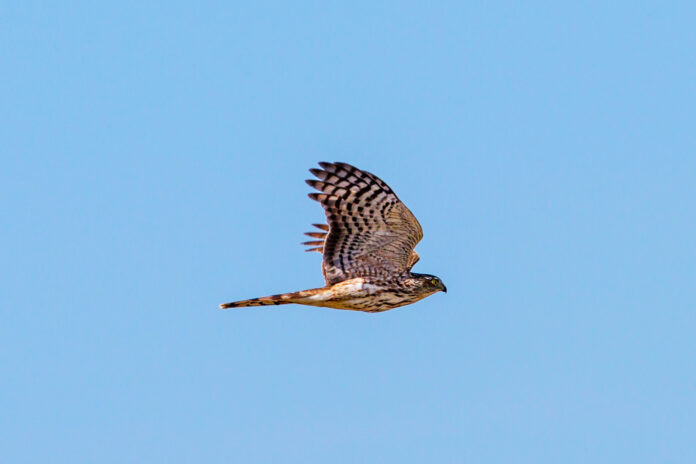
Avian nomenclature generally does not rate a lot of attention – or any attention, really – in the mainstream media. At least it didn’t until last week, when the American Ornithological Society sent out a press release.
Stories soon followed in The New York Times, The Washington Post, Smithsonian Magazine, Politico, on NPR, CNN and other outlets, including the predictable rant against “wokeness” on Fox News.
What radical idea was in the press release? That birds would no longer be named after people.
At first you might ask, who is this group that thinks they get to decide what birds get which names? But the American Ornithological Society, formerly called the American Ornithological Union, has been in charge of the official English-language common names, as well as the official Latin and Greek scientific names, of all birds in North and South America since 1886. (They are also one of the keepers of avian taxonomy, the chart/list/concept of where birds fit in the evolutionary tree.)
Whenever I’m out with a newer birder and they screw up an ID – call a great egret a great hhite heron, or something like that – and they get apologetic, I usually make the same joke: Birds don’t care what you call them. Heck, I even have a 45-minute talk I’ve given a bunch of times with the subtitle, “Birds Don’t Care What You Call Them.” Because they don’t care. But that isn’t to say what you call them doesn’t matter.
The fundamental unit of understanding birds is species. That’s the nucleus of our conception of not just birds, but all organisms and their lives. Which is why a consistent naming system is necessary. It’s a bulwark against the chaos of misunderstanding.
The concept of species is a little like art or pornography – hard to define, but you know it when you see it. Or you think you do. The definition has shifted since its earliest incarnations, and will no doubt continue to do so as we learn more. Currently, species and taxonomy are being somewhat radically redefined by DNA and genetic testing.
On average, several bird names get changed every year, and people generally don’t get upset. Species get lumped, like when the Audubon’s warbler and the Myrtle warbler were redefined as different populations of the same species, the yellow-rumped warbler. Or they get split, like last year when the Eastern meadowlark population was divided into the Eastern meadowlark and the newly-named Chihuahuan meadowlark.
Names also can be changed if they’re deemed offensive, such as oldsquaw, now considered something of a racial slur, which was replaced with long-tailed duck.
The impetus for renaming all birds named after people was a little different. The short version is: Some birds are named after really horrible people. For instance, the Townsend’s warbler and the Townsend’s solitaire are both named after John Kirk Townsend, who collected many bird specimens new to science during an 1833 expedition through the Rocky Mountains.That sounds nice. But he also spent a lot of time on that trip robbing the graves of Native Americans and stealing their skulls in an attempt to prove their intellectual inferiority via the “cutting-edge science” of phrenology.
Hammond’s flycatcher is named after William Alexander Hammond, the U.S. Surgeon General during the Civil War until he was court-martialed – though he was in the right in that instance. Hammond was also a pioneering neurologist who, while in the army, encouraged soldiers to pick fatal fights with Native Americans – and only those they thought were pure Native Americans – so he could study their brains. He was raised in a free state, but acquired slaves when he moved west, and despite being in the Union army, he was a hardened anti-abolitionist. Hammond also held numerous racist and misogynist beliefs that he acted upon during his career.
I could go on – about Winfield Scott (Scott’s oriole), who oversaw the forced relocation of the Cherokee people from North Caroline to Oklahoma in what we now call the Trail of Tears. Or about William Bachman (Bachman’s warbler), who was a sometimes pal of John James Audubon, but also a slave-owning anti-abolitionist. Or about Audubon himself (Audubon’s shearwater and Audubon’s warbler), whose impact on American ornithology is deep, so much so that he is the one ornithologist most people can name, but was also a slave owner who expressed many disturbingly racist ideas and once bragged about cajoling a family of escaped slaves into returning to their enslavers. (The Audubon Society name is a whole different conversation.)
And it doesn’t stop there, or anywhere near there.
The conversation about how problematic – or f*cked up, depending on how you want to phrase it – a lot of these eponyms are, and the question about whether something should be done about them, started just after the incident with Christian Cooper in Central Park in 2020. At least that’s when a lot of people first started thinking about it.
There is the question of honoring people who perhaps shouldn’t be honored. There’s also the fact that some of these eponyms make a lot of black people, Native Americans and people of other ethnicities deeply uncomfortable, so it blunts a lot of people’s interests in the world of birds.
Birds are under threat from so many forces – habitat loss, light pollution, feral cats, tall buildings, etc. Avian populations are declining all over the place. People’s interest in birds is their best hope for survival and protection. Why would you want to leave in place a series of names that alienates large swaths of humanity?
There are about 150 birds in North and South America named after people, and 70 or 80 of those species get seen regularly in the U.S. Not all of their namesakes did reprehensible things. Most of them probably did not. But the question of who was moral and ethical enough to have their name attached to a species is a deeply thorny one, as well as an exhausting one.
I am wowed by the AOS’ simple and clear solution: Don’t name birds after anyone.
Nobody is owed an honorific, especially someone who died 150 years ago. Naming birds should not be about egos or honor or reverence or sentimentality. It should be about the birds, what makes them distinctive, where they live, how they thrive.
I think it’s important to keep some poetry in there, but eponyms tell us nothing, other than the fact that some human had some social status back in the day. I’m relatively fond of humans – some of them anyway – but everything need not be about us. In fact, we gain a much better understanding of the world and how it works when we stop making everything about us.
And it’s not going to happen overnight. Avian nomenclature is a slow-steering ship. It will take years, possibly decades. (They are not changing the scientific nomenclature, just the common names.) Everyone will survive the process. And a lot of new birders might feel more at home, might feel they have a stronger stake in the world of birds, and a greater understanding of the imperative to protect them.
I’m sure I, like a lot of birders, will screw up a lot when the new names come around, falling back on the well-worn grooves in my brain. And that’s fine. The birds really don’t care.



